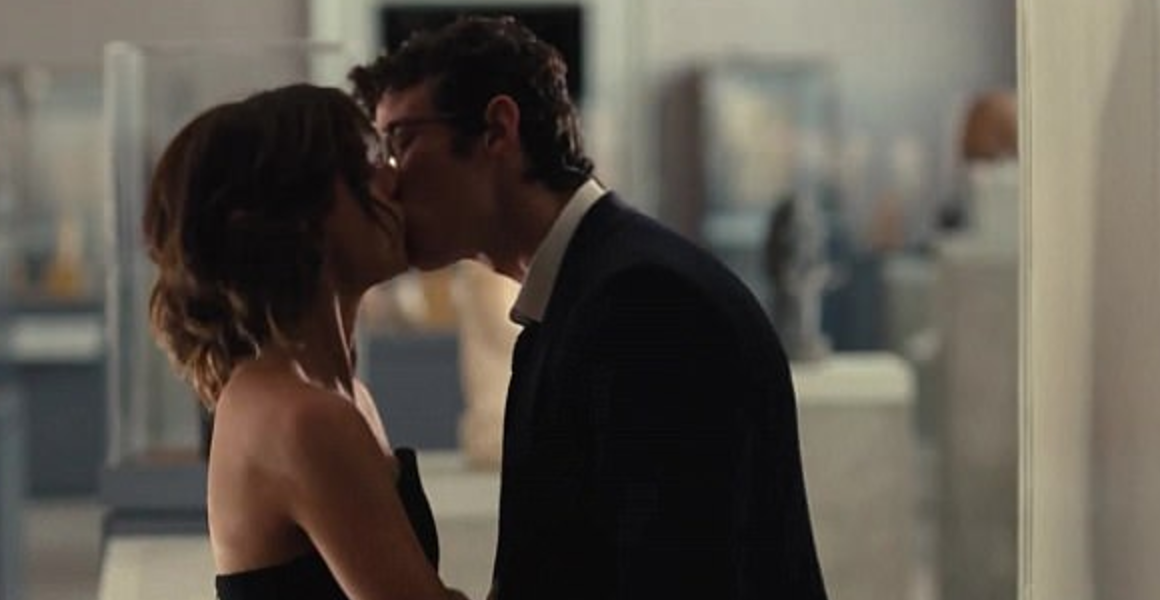For a director whose debut was (500) Days of Summer, it’s something of an about-face to shift to an entirely opposite and opposed coast with The Only Living Boy in New York. And yet, there is something all too familiar about Thomas Webb (Callum Turner)–as though, in an alternate universe (or geographical location), he is the precursor to Joseph Gordon-Levitt’s character, Tom Hansen. Both possess a hopeless naïveté about love that’s ultimately shattered by an unwitting femme fatale. In Thomas’ case, that comes in the form of both his best friend, Mimi (Kiersey Clemons), and his father’s mistress, Johanna (Kate Beckinsale, who isn’t kidding anyone with her plastic surgery).
As his obsession with the former begins to wane–and this after he’s told his mysterious, Mr. Miyagi-like neighbor, W.F. Gerald a.k.a. Julian Stellars (Jeff Bridges), all about it–he focuses his attentions on getting Johanna to stop seeing his dad, Ethan (Pierce Brosnan, still the pussiest Bond), a major magnate in the book publishing industry. As he follows her through the city, he finally gathers the courage to approach her one day, an act she’s nonplussed by as she’s fully aware he’s been stalking her and of his identity. It’s all part of her cool-as-a-cucumber, I’m so British act–more than likely part of the allure for Ethan in having an affair with her. That, and well, he’s married to uppity, hyper-sensitive, bipolar Judith (Cynthia Nixon, the casting of whom should tell you all you need to know about his lack of interest in her “aesthetic” over Johanna’s).
But more than an Oedipal tale of fatalistic proportions, The Only Living Boy in New York is, most of all, about the change the city has undergone, how “commerce has won out” in the battle against art. As Julian opens the film with his distinct voiceover, he laments, “‘The best lack all conviction, while the worst/Are full of passionate intensity.’ Yeats said it, but so did Lou Reed at The Bottom Line, which is probably a Soul Cycle now. The only soul left in the city.” This sentiment is echoed at a dinner party thrown by Judith–dinner parties keep her from spiraling into a deep depression–where guest regulars like Anna (NYC staple Debi Mazar), George (Tate Donovan) and David (Wallace Shawn)–rue the state of the city and romanticize the way it used to be by recalling the “edgier outposts” that have been replaced with the likes of John Varvatos. Ethan, meanwhile, balks at the notion of those who still attempt to play the starving artist role of aspiring writer, commenting that if Thomas ever came to him and said he wanted to write, he would convince him otherwise. Because, after all, if Ethan was a writer as he had originally set out to be before admitting to his lack of talent, “We’d be having this conversation in a two-bedroom apartment in Bushwick.” A remark one guest rebuffs with, “Bushwick is expensive now!” The point being, of course, that the city has no place in its bowels for real artists anymore, the kind not coasting on daddy’s dime to focus all their energies on honing a “craft” they don’t have. At least, this is what Mimi has gleaned in her pursuit of a fellowship in Zagreb, and what Julian observes as he watches Thomas waffle in his own dreams of becoming a writer, a secret desire that Ethan has deliberately quashed throughout Thomas’ life. As Judith says, however, “The farthest distance is between the way it is and how you thought it was going to be.”
Though the film has been universally panned, Webb certainly has the means to make whatever fucking movie he feels like after his direction of both The Amazing Spider-Man and its sequel (ah, that sweet franchise paycheck). And The Only Living Boy in New York is a pure representation of making a movie out of love. In contrast to his previous schmaltzy screenplay, Collateral Beauty, Allan Loeb’s dialogue-rich script harkens back to just the New York Julian and Judith constantly reference–the one of Woody Allen and intellectual conversations that actually sounded natural instead of utterly pseudo. The city that beckoned to aspiring writers and musicians from across the globe because it was a community, and affordable, too. While Thomas is of the “new New York,” the one lacking any danger or mystery, he is a hopeful part of it, still fighting the good fight–even if, in Mimi’s eyes, he’s been just as corrupted as all the others by the land of perpetual decay. But then, isn’t it comforting to know that New York will always be an inspiration in this way? For no matter how far away this town gets from its “original self,” it is still as Julian assures Thomas, “New York is the world.”





















